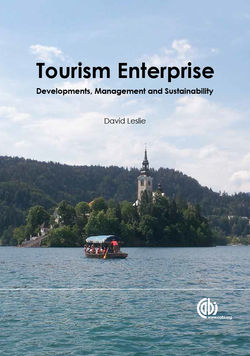Читать книгу Tourism Enterprise - David Leslie - Страница 8
На сайте Литреса книга снята с продажи.
Empirical Foundations
ОглавлениеThe paucity of research into SMEs in tourism, most especially in terms of their environment performance and related actions, became very much apparent from the tourism literature and at many a conference on tourism or involving sessions on tourism in the 1990s. An outcome which was all the more manifest whilst undertaking the requisite secondary research into the greening of tourism enterprises in preparation for a major study into the greening of tourism enterprises in the Lake District National Park (LDNP) in Cumbria (Leslie, 2001b), an area acclaimed for its physical attractiveness, a powerful constant of demand for tourists, and considered in the top 50 of worldwide destinations. The National Park itself is in the county of Cumbria, a rural area in north-west England, home to approximately 10% of Cumbria’s population. Tourism is the major economic activity in the area and is estimated to support approximately 50% of employment (Leslie, 2005). Factor in the commitment of the Cumbria Tourist Board (CTB) to promoting the greening of tourism then the LDNP was a particularly appropriate area to investigate the environmental performance of tourism enterprises especially given that it has been nationally recognized for promoting ‘sustainable tourism’ and its international renown. Thus, the extent to which policies advocating ‘the greening of tourism’ and related initiatives have been realized was encompassed in the aims, i.e. to identify and evaluate the level of awareness, attitudes and perceptions of green issues, and associated practices, of owners/managers of tourism enterprises. In the process, to establish those factors influential to the adoption of such practices. In other words, their overall environmental performance thus EM practices and CSR activities.
